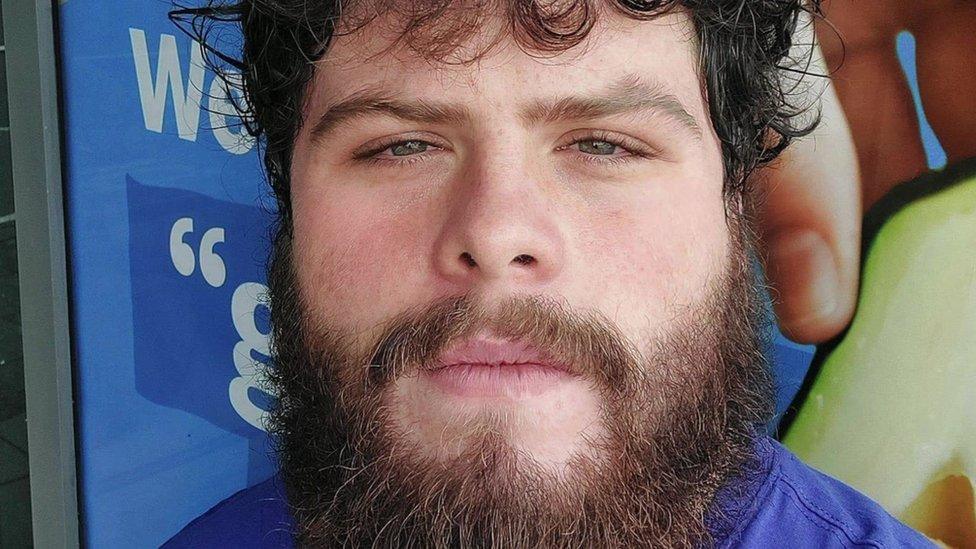Plymouth shootings: Government stops short in shotgun reforms
- Published

Maxine Davison, Sophie and Lee Martyn, Kate Shepherd and Stephen Washington were killed in August 2021
Ministers have stopped short of accepting a coroner's call for "root and branch reform" of gun laws after a mass shooting in Plymouth.
Policing Minister Chris Philp launched a consultation into firearms licensing but he rejected a key recommendation to back tougher restrictions on shotguns.
He also announced a national training programme for firearms officers.
Labour MP Luke Pollard said mass shootings were "doomed to repeat" if gun laws were not updated.
Jake Davison, 22, used a legally-held shotgun to kill his mother Maxine Davison, 51, and four others before shooting himself in the Keyham area of the city on 12 August 2021.
Three-year-old Sophie Martyn, her father, Lee, 43, Stephen Washington, 59, and Kate Shepherd, 66, were all killed.
The government launched a public consultation on Thursday, external in response to the Plymouth shooting and a report by the Scottish Affairs Select Committee following its review of firearms licensing after the fatal shooting of John MacKinnon on the Isle of Skye on 10 August 2022.
In the Home Office consultation it states: "Public safety is our priority, but the measures to manage the risk to public safety must be proportionate and balanced with the fact that the vast majority of licensed firearms holders are law abiding and cause no concern."
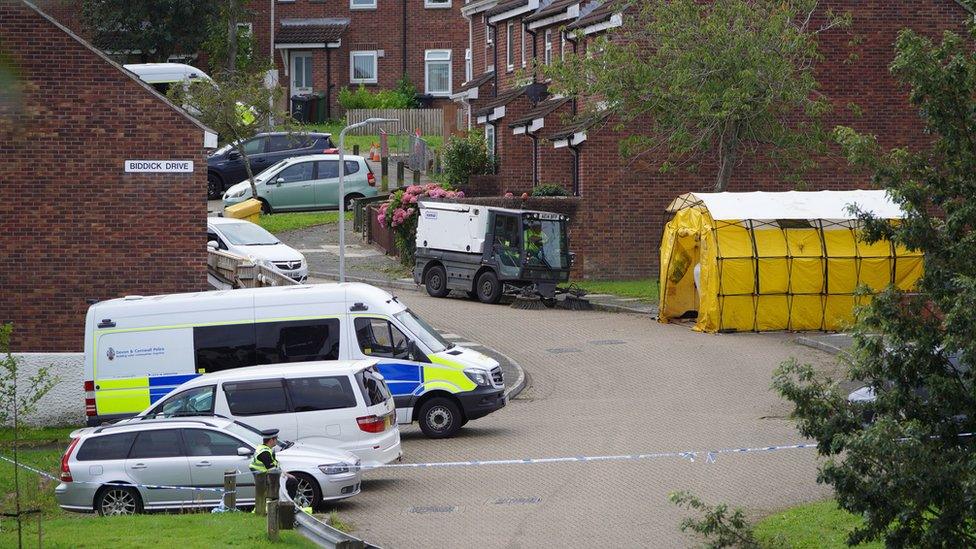
Jake Davison killed five people, including his mother Maxine, in the Keyham area of Plymouth
Mr Philp also announced a review of firearms licensing fees which could increase substantially to meet the costs of issuing licences.
He said: "This appalling event is a stark reminder of the importance of public safety, and my thoughts remain with the victims of the Keyham tragedy and the people of Plymouth.
"The UK already has some of the toughest gun laws in the world but it is important that we keep these under constant review."
'Broken and outdated'
Mr Pollard, the MP for Plymouth, Sutton and Devonport, welcomed mandatory training for police licensing units and the review of fees as "small steps in the right direction".
But he said he was concerned a number of proposals would not be adopted at the end of the consultation process.
"The coroner's recommendations weren't a policy pick and mix but the bare minimum needed to learn the lessons from the tragedy in Plymouth," he said.
"I believe strongly that Britain's gun laws are broken and outdated.
"Unless we learn the painful lessons of the Plymouth tragedy, we will be doomed to repeat them."
'Abject failure'
Ian Arrow, senior coroner for Plymouth, Torbay and South Devon, had called for a major overhaul of gun laws after an inquest found "catastrophic police failings" before the shootings.
He found there had been an "abject failure" to properly train police officers and police staff in firearms licensing decisions over nearly three decades.
He said there was an "urgent need" to develop nationally-accredited training for firearms and explosive licensing staff.
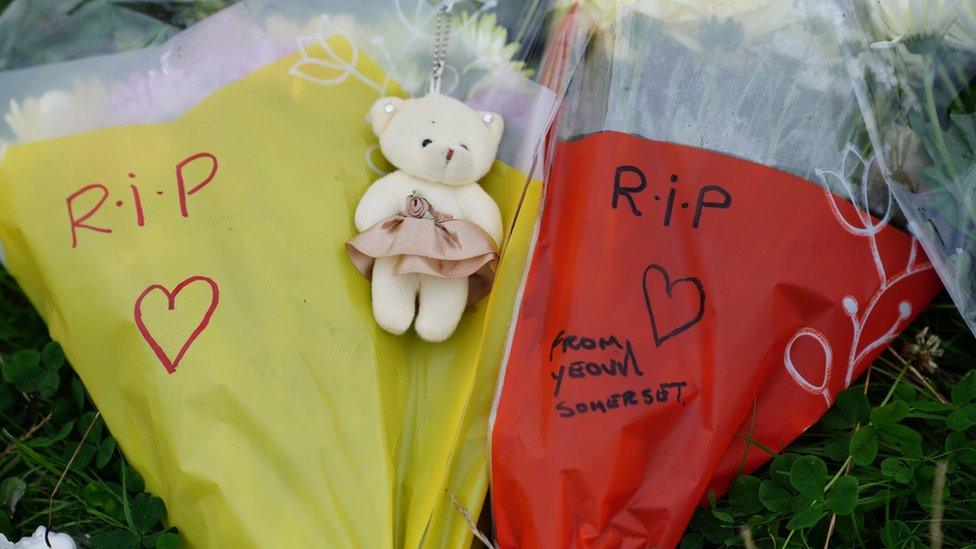
Floral tributes were left in Keyham following the mass shooting in August 2021
In a written statement, external, Mr Philp said the government was tackling the issue of police training "straight away" by providing £500,000 for a new national training programme led by the College of Policing and the National Police Chiefs Council.
He said the training would become mandatory for police firearms licensing teams "in due course" and inspections would be in place in 2024/2025.
'Right of entry'
As part of the consultation on firearms licensing, the government is considering whether to grant police the power to enter a gun owner's home without a warrant to seize weapons when there is a risk to public safety.
The coroner had said he was concerned authorities could only enter a property to seize guns or ammunitions when there was an immediate threat to life - officers otherwise had to rely on warrants or voluntary surrender.
The British Association for Shooting and Conservation said it opposed changes that it said would grant "an automatic right of entry by the police to certificate holder's premises".
It said: "If there is a risk to public safety or the peace, then a warrant can be obtained."
Meanwhile, the Gun Control Network accused the government of "prioritising the interests of shooters over public safety".
It said: "They have sent a message of 'business as usual' to shooters and done as little as possible to upset them."
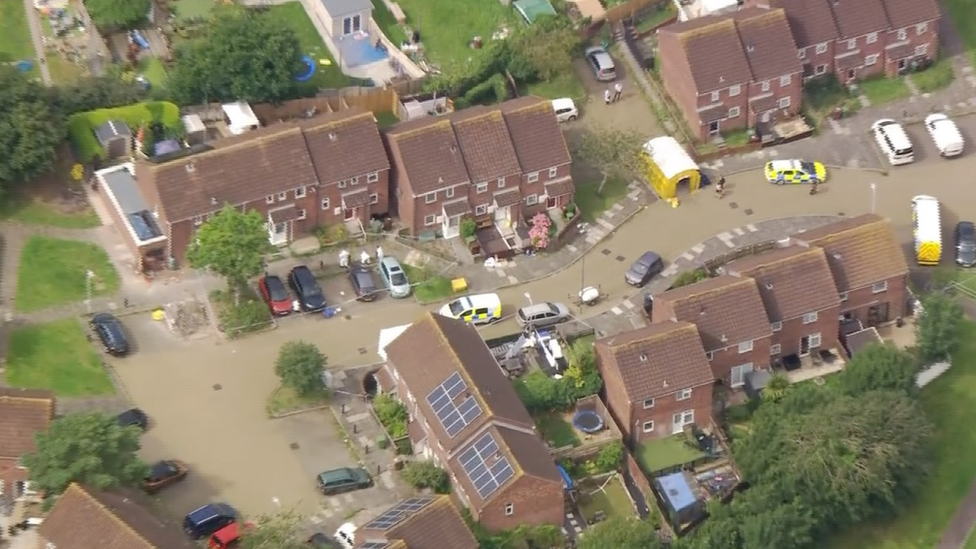
Davison shot his mother Maxine at their home on Biddick Drive before killing Lee and Sophie Martyn in the street
The inquest heard the price of a shotgun licence was £79.50 - but the cost to police forces of processing an application could be more than £500 - which the coroner said risked "rushed and ill-informed decisions".
Mr Philp said the government was reviewing firearms licensing fees to move to "full cost recovery" for the police.
He said: "We intend to consult on the new fees this summer and to bring forward the necessary statutory instrument to make the fee changes later this year."
Mr Philp said the government would not accept the coroner's recommendation on aligning shotgun and firearms legislation, rejecting the move as "unnecessary".
"Shotguns are already subject to significant controls, and they are important in helping farmers control vermin on their land, as well as being used in a variety of rural pursuits," he said.
Mr Arrow had said he was concerned the current law meant there were "less stringent" restrictions on shotguns than firearms despite shotguns being "no less lethal".
'Wrong hands'
Ch Con Debbie Tedds, the National Police Chiefs' Council lead for firearms licensing and explosives, said she was disappointed the government was not acting on some recommendations.
She said the Keyham tragedy was "an opportunity to further strengthen the legislation and could mitigate any potential threat to public safety stopping firearms ending up in the wrong hands".
She added: "Many detailed checks are made when someone applies for a firearms licence and while policing has a central role in this, we need to be supported by the legislation."
Other key government proposals include updating mandatory prohibitions - circumstances when a person is automatically denied a gun - and reviewing the length of renewal periods for licences, currently five years.
It is also consulting whether two referees, rather than one, should be required for the application process and whether GPs and other health professionals should notify police if there is a deterioration in the gun holder's physical or mental health.

Follow BBC News South West on Twitter, external, Facebook, external and Instagram, external. Send your story ideas to spotlight@bbc.co.uk.
- Published10 March 2023

- Published20 February 2023
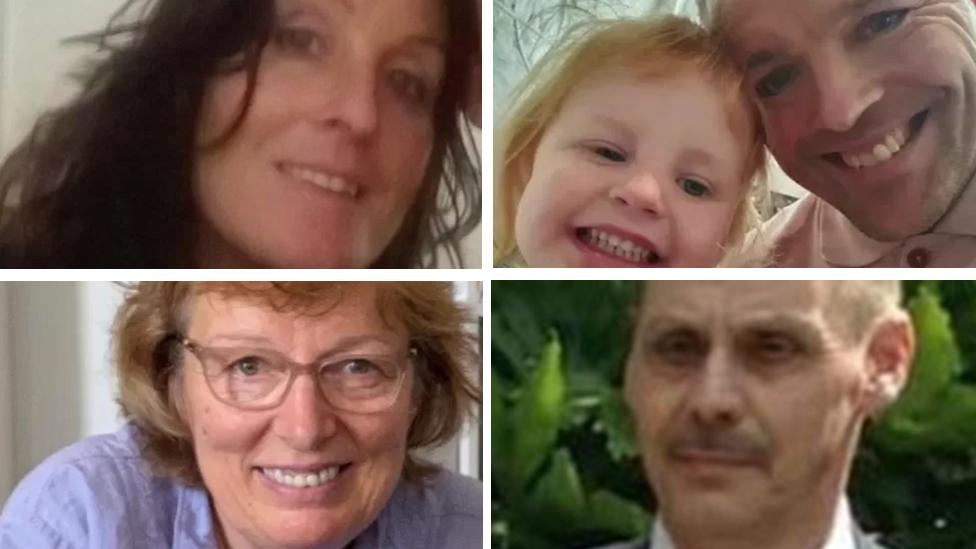
- Published21 February 2023
